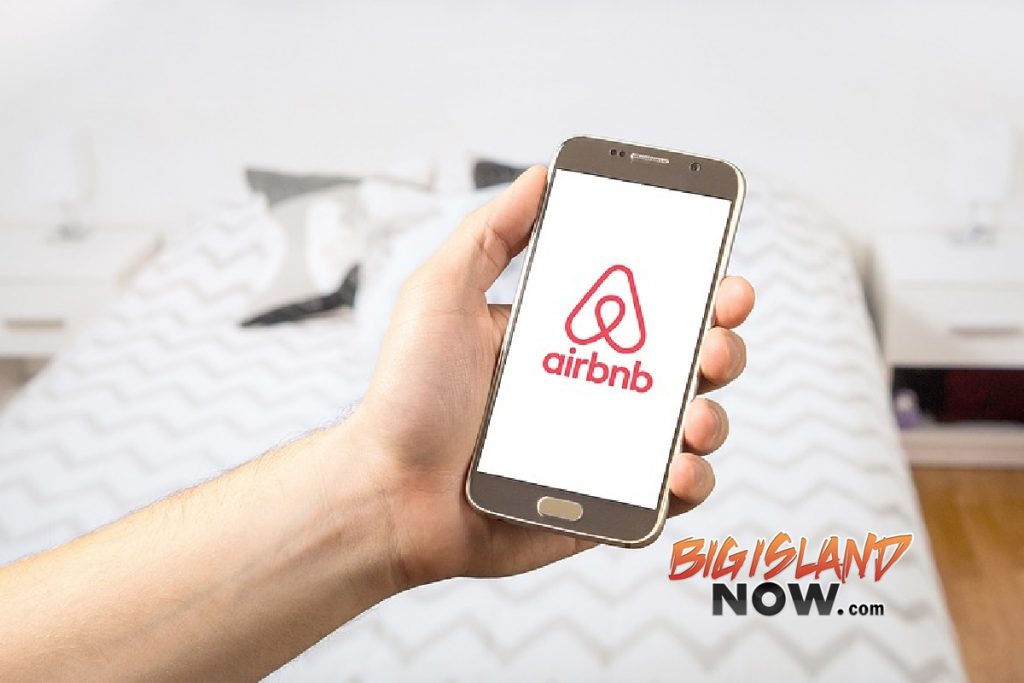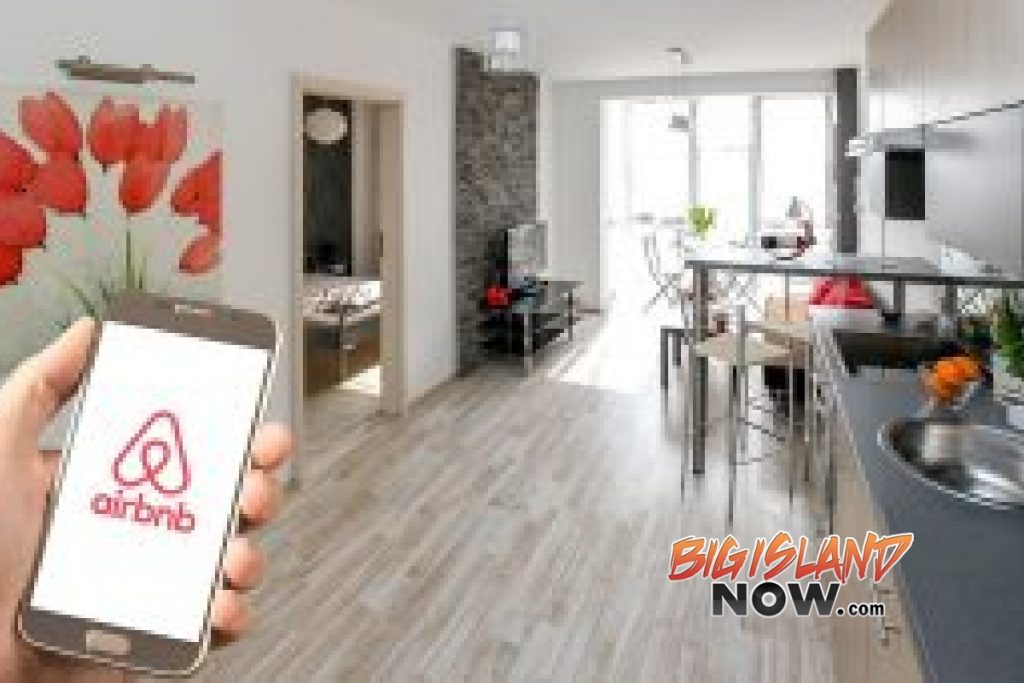Airbnbs Reaping Big Profits on Big Island—For Now
 One savvy entrepreneur on Hawai‘i Island built a 225-square-foot treehouse that is one of the most-wish-listed places in the world—and she did it all for just $23,000.
One savvy entrepreneur on Hawai‘i Island built a 225-square-foot treehouse that is one of the most-wish-listed places in the world—and she did it all for just $23,000.
She bought the lot for $8,000—without having stepped foot on it—and took three months to build the treehouse with her mom and sister. She brought a lot of the materials from the mainland in her carry-on luggage, because it was cheaper than buying them on-island or shipping them. The house is primarily made of wood, plywood and bamboo.
The rental is a one-bed, one-bath and sits 15 feet above the ground with a wrap-around lānai. It features massive windows and doors, a solar lantern chandelier and a hanging bed surrounded by a canopy beneath the house. The treehouse is flooded with natural light. It is also extremely eco-friendly, using catchment water and recycled grey water. It is completely off-grid, so there is no fridge or freezer but a small electric cooler instead.
The rental is regularly booked months in advance. The rental goes for $300 per night, which means she would be able to cover her building expenses in just three months of renting the vacation spot—the rest is pure profit, illustrating a great lesson in entrepreneurship.
Cases like this have made state lawmakers eager to pass legislation enabling them to collect tax revenue from Hawai‘i’s flourishing, yet mostly unpermitted Airbnb vacation rentals. In total, they could bring the state an additional $46 million a year in revenue.
Although Airbnb, which launched in 2011, has helped increase short-term rental homes for visitors, it has also been blamed for contributing to the shortage of housing and affordable residents for residents.
“Through the permitting process, the counties determine where short-term vacation rentals will be allowed,” Rep. Richard Onishi (Puna District) said. “The problem has been that all of the counties have not done a very good job of enforcing their laws, policies and procedures… Unregulated, unpermitted short-term vacation rentals have been established in local residential neighborhoods creating all kinds of issues and problems.”
In fact, according to a study commissioned by the Hawai‘i Tourism Authority, at least 8,000 additional vacation rental listings have popped up over the past decade.
Hawai‘i SB 1292, which passed with a 13-12 vote, will allow the state to collect transient accommodation (TAT) and general excise (GE) taxes from short-term rentals.
According to Onishi, “SB 1292 would require the hosting platform that the owner or operator is using to rent their property to collect both the GE and TAT. The hosting platform would then submit the taxes collected to the state on behalf of the owner or operator, the state would credit the taxes to the owner or operator when it is received and credit the payments to their tax liability.”
The bill went to Gov. David Ige for his signature on May 8.

















